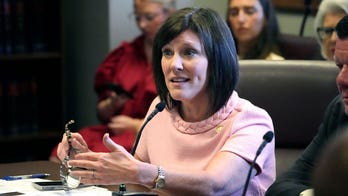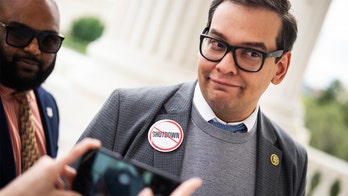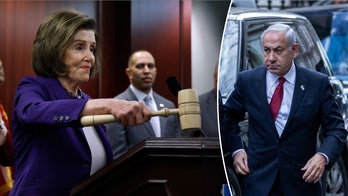The Supreme Court on Wednesday blocked cameras from covering a high profile federal trial on the constitutionality of California's ban on same-sex marriage.
The high court's late Wednesday afternoon order means that the trial, now in its third day in San Francisco, will proceed without the streaming video on the court's Web site.
The high court split 5-4, with the conservative justices in the majority.
The majority's ruling does not indicate the author but states that "it appears the courts below did not follow the appropriate procedures set forth in federal law before changing their rules to allow such broadcasting."
The ruling further states that "irreparable harm" would likely result if people outside the courthouse were able to watch the proceedings. The harm would come from witnesses who say they would be reluctant to testify for fear of harassment.
In his dissent, Breyer said he could find no reason to justify the high court's "extraordinary intervention" in the case. He said the court "should adhere to its institutional competence, its historical practice, and its governing precedent--all of which counsel strongly against the issuance of this stay." Breyer was joined by Justices John Paul Stevens, Ruth Bader Ginsburg and Sonia Sotomayor.
On Monday, before the trial started, Justice Anthony Kennedy issued a temporary stay to give the justices more time to consider the issues. In the San Francisco courtroom where the trial is taking place, District Court Judge Vaughn Walker said public comments about the issue totaled 138,542 to 32 in favor of the broadcast.
But lawyers opposed to the transmission highlighted to the high court their concerns about "the impact that video distribution of trial proceedings to millions of people may have on witnesses, lawyers, and judges." They also argued that permitting the video transmissions goes against standard policies prohibiting the practice.
A number of broadcast organizations, including Fox News, joined a brief to the court asking the justices not to block the video. The sticky issue of allowing cameras in federal courts--including the Supreme Court--is the subject of ongoing debate that the majority in this decision didn't want to get into saying their ruling was made "without expressing any view on whether such trials should be broadcast."
It is unlikely the video dispute will be the last time the high court is asked to get involved in this case. Irrespective of Judge Walker's ruling, it is widely expected that it will be appealed and eventually reach the Supreme Court. If that happens, the case will become the most important showdown over the legality of gay marriage in American history.




